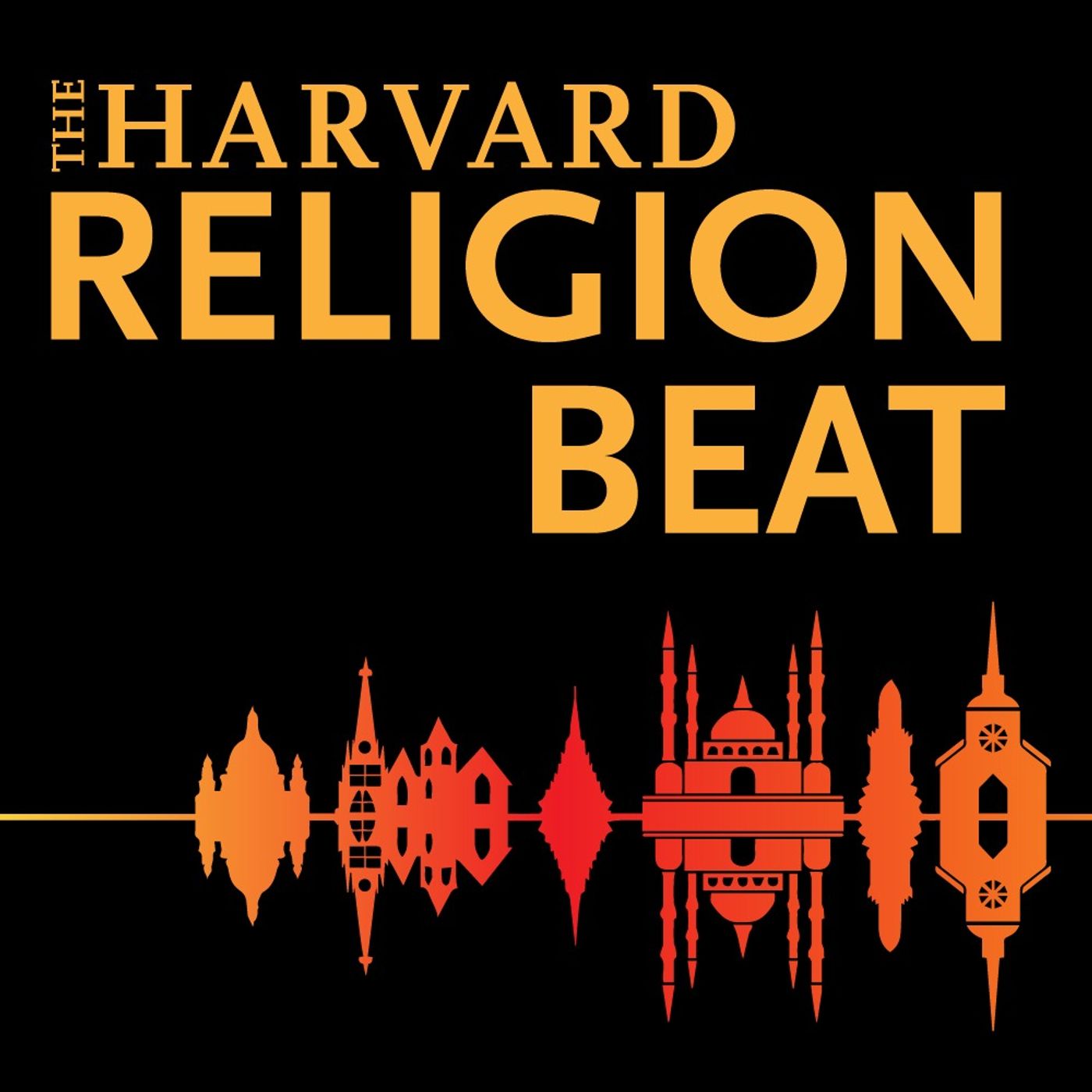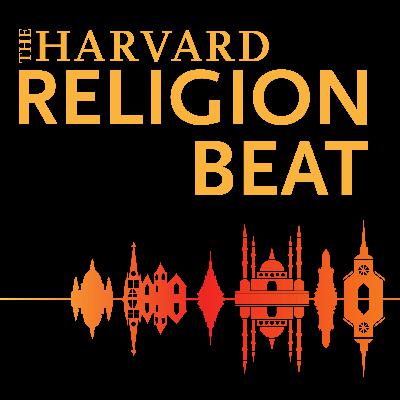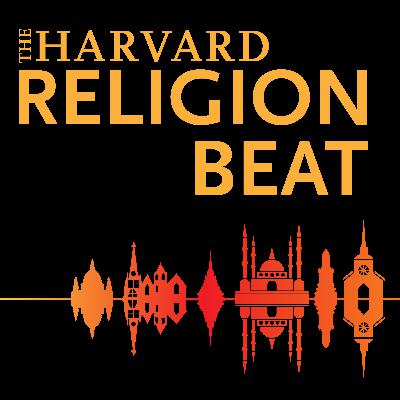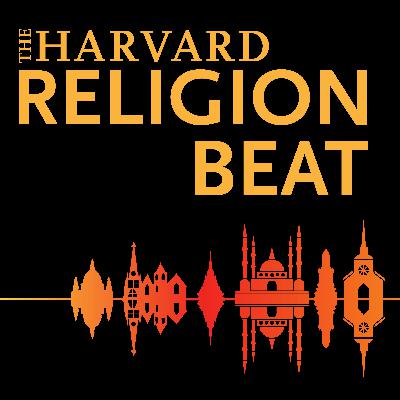Discover The Harvard Religion Beat
The Harvard Religion Beat

11 Episodes
Reverse
Sixty years ago on Good Friday, a famous experiment took place at Boston University's Marsh Chapel conducted by Harvard Divinity School student Walter Pahnke, where he tried to answer the question: Do psychedelic drugs occasioned mystical experiences?
In 2022, conversations about the connections between psychedelics, science and medicine, and spirituality are again top of mind, from Harvard and the academy to research hospitals and beyond.
In this episode, Harvard Divinity School student Paul Gillis-Smith speaks to scholar J. Christian Greer about the impact of the “Marsh Chapel Miracle,” what role psychedelics might play in the future of religion, and why, he says, there’s potential for great harm, but reasons to be hopeful, too.
Vladimir Putin's invasion and war on Ukraine is a crisis. It's a crisis that is unfolding before our very eyes across social media and cable and online news, and it's more than just a political crisis, though that's likely what most of us are hearing about. Putin's war is crisis of humanity. It's a crisis of conscience … and it's a crisis with deep religious ties.I'm Jonathan Beasley, and in today's episode of the Harvard Religion Beat, I'm speaking with Sean Eriksen about the religious connection to Putin's war on Ukraine. Sean is a graduate student at the Davis Center for Russian and Eurasian Studies at Harvard University, specializing in contemporary Russian national identity and regime ideology. Sean is originally from Australia. He holds degrees in law and international relations, and he's lived in Kyiv, Ukraine, and has travelled throughout the former Soviet Union.
‘Tis this season of peace and goodwill, of traditions, both familial, and religious, and to some, it’s the time of year to freak out about the so called “War on Christmas.”A rallying cry for certain sectors of the media, Christmas, apparently, has been under siege for decades, with liberals and the non-religious doing everything they can to take Christ out of Christmas. But is Christmas really under threat? Even taking into consideration the constitutional separation of church and state, you can’t go anywhere in America during December and not be reminded that it’s Christmas. Decorations and ornaments, garland and lights, Christmas trees, even the media that surrounds us across any and all platforms, reminds us that Christmas is everywhere. So, if there’s a war on Christmas, then surely it’s being lost by whomever is waging it. Now, if you want to wage a real war on Christmas, as far as I can tell, the best way to do it is to just make it illegal, which is exactly what happened from 1659 to 1681 here in Boston, Massachusetts, when anyone caught celebrating the holiday would be subject to a fine of 5 shillings. And do you know who was responsible for canceling Christmas? Was it some anti-religious group or a bunch of pagans? Was it liberal policymakers or a rogue state official? Nope. It was one of the most pious groups of people at the time: the Puritans.I’m Jonathan Beasley, and this is the Harvard Religion Beat, a podcast examining religion's underestimated and often misunderstood role in society.Today, I’m speaking with David F. Holland, who is the John A. Bartlett Professor of New England Church History here at Harvard Divinity School. I wanted to get Professor Holland’s insight into two specific questions: Why did the Puritans ban the celebration of Christmas, and did that ban set the stage both for future similar laws, and even a particular New England way of life?
Dune. The Matrix. Blade Runner. Star Wars. We know that fantasy and sci-fi use religion, but do they change actual religion in the process? Do they impact how we believe, what we believe, and even the nature of belief itself?
Today we're speaking with HDS Professor Charles Stang, who teaches the binge-worthy course, “Aliens, Artificial Intelligence, and Apocalypse: Ancient Mythology and Contemporary Film." We investigate why fantasy and sci-fi use religious elements in storytelling and even create full religions of their own. Do they appropriate or appreciate, respect or denigrate?
The modern environmental movement was born 51 years ago when millions of people took part in protests and rallies in streets, parks, auditoriums, and on college campuses as part of the first-ever Earth Day.Yet today, as species continue to face extinction, and as weather events, heatwaves, floods, and wildfires around the world wreak havoc on populations and our planet, it can seem like, when it comes to protecting and healing our natural world, we’re taking one step forward but two steps backward.So, how do we face the harsh realities and the loss associated with climate change, while still finding joy in the natural wonder that surrounds us? How do we reconcile beauty and brokenness?In this episode of the Harvard Religion Beat, I’m speaking with Terry Tempest Williams, activist, conservationist, Harvard Divinity School Writer in Residence, and author of numerous books, including the environmental literature classic, Refuge: An Unnatural History of Family and Place.For Earth Day 2021, I wanted to speak with Terry about the course she’s teaching this semester, and about the spiritual implications of climate change, and how we can still find beauty despite the chaos that surrounds us.
Examining religion's role in past pandemics, the responsibility faith leaders have during a health crisis, and how religious practice has been changed by the Coronavirus.
In February of 1926, Carter G. Woodson, a Harvard-education historian, had a very specific goal in mind when he established what was then called Negro History Week. He hoped, as time went along, that Black history would be recognized as so entrenched in American history that calendars wouldn’t indicate when society should celebrate Black history.Flash forward to 1970, when Black History Month as we know it today was first celebrated at Kent State University, then 16 years later, in 1986, when the U.S. Congress officially recognized Black History Month as the law of the land, some 60 years after Carter Woodson pioneered the celebration.I’m Jonathan Beasley, and this is another special pop-up episode of the Harvard Religion Beat. Today, I’m speaking with Quardricos Driskell, MTS '08, adjunct professor of religion and politics at George Washington University, as well as a writer, policy influencer, lobbyist, and pastor of the historic Beulah Baptist Church in Alexandria, Virginia.I wanted to speak with Quardricos about whether Black History Month has taken on new significance in 2021. We’ll also chat about avoiding complacency around racial justice issues now that the Trump presidency is over, how the Black Lives Matter movement can continue its momentum by working across generational divides, and why Democrats running for political office should talk more openly about their faith.
In an October 2020 op-ed for the Christian Post, Joe Biden wrote: “My Catholic faith drilled into me a core truth—that every person on earth is equal in rights and dignity, because we are all beloved children of God.” As president, he continued, “These are the principles that will shape all that I do, and my faith will continue to serve as my anchor, as it has my entire life.”I’m Jonathan Beasley, and this is a special pop-up episode of the Harvard Religion Beat. Today, I’m chatting with E. J. Dionne, who many of you likely know as a journalist, author, and political commentator. He also teaches at Georgetown and here at Harvard and HDS. And just before the election he co-authored the report "A Time to Heal, A Time to Build," with Melissa Rogers for the Brookings Institution, where he is a senior fellow in Governance Studies.I wanted to speak with E. J. to get his insight into how Joe Biden’s Catholicism will shape the way he governs as president, and how his faith will serve as a road map for how his administration will tackle economic injustices, equal rights, religious freedom, and racial justice—all while trying to heal a very divided nation.Music credit: InSpectr, "After the Border" (Free Music Archive)
The Rundown00:01 - Jon Kabat-Zinn speaking with Bill Moyers00:36 - Birth and rise of Mindfulness-Based Stress Reduction02:03 - Mindfulness meditation gains popularity04:25 – Intro to the episode and to guest Chris Berlin, mediation teacher and instructor at HDS05:59 - Mindfulness as a secular approach to traditional meditation practice10:34 – Benefits and how mindfulness meditation has/n't changed over the years12:21 - Explosion of the digital mindfulness landscape and possible downsides14:45 - Whatever works for you17:20 - Anything we do, we can be mindful about it19:23 - Credits, connect with us, and VeritalkFull transcript on the Harvard Divinity School website. | If you don’t already, please follow us on social and subscribe to our e-newsletter!Music credits: Chris Zabriskie; InSpectr (Free Music Archive)
The Rundown00:01 - Phone call and defacing of synagogue library01:19 - Violence against religious minorities is on the rise02:56 - Responsibility of politics leaders and President Trump04:41 - Rabbi Gerson on what it's like to lead worshipers in unsettling times06:13 - The FBI's misleading hate crime statistics10:21 - Emboldening of white supremacists13:41 - White nationalism's global rise14:47 - Hope for the future15:54 - International response needed16:36 - Golf clap + other ways to connectFull transcript available on the Harvard Divinity School website. | Subscribe to HDS social and subscribe to our e-newsletter.Music credit: InSpectr (Free Music Archive)
The Rundown00:26 - White evangelical support for Trump01:53 - Intro to the pod and to my guest, Prof. Dudley Rose02:25 - Evangelical oppression?05:01 - Abortion as a redline08:46 - Evangelicals "dream president"10:47 - Jesus chatting w/ Trump11:51 - Lesser of two evils?14:56 - Democrats win over white evangelicals?17:14 - "Evangelicals are people of hope, not fear"18:06 - Golf clap + other ways to connectFull transcript available on the Harvard Divinity School website. | Follow us on social and subscribe to our e-newsletter! And listen to our other pod “Ministry of Ideas!”Music credit: InSpectr (Free Music Archive)














